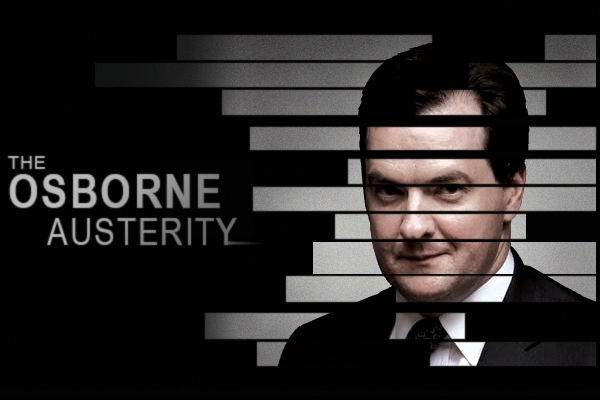George Osborne’s critics like to deride him as the ‘jam tomorrow’ Chancellor. But according to the post-Budget briefing the Institute for Fiscal Studies gave this afternoon, he’s the ‘pain tomorrow’ Chancellor instead. It’s not that things really aren’t getting better, but that the bulk of the pain in terms of spending cuts and tax rises isn’t just not over, it’s not even here yet.
The IFS team gave a series of presentations (in case you hadn’t sunk into a pit of misery after Fraser’s six scary graphs yesterday) showing that yesterday’s Budget will lead to big tax increases and spending cuts from 2016 onwards. Paul Johnson, IFS director, said there was a ‘heavy hint’ that the consolidation needed would come from tax:
‘There are other changes too which might frighten Whitehall departments. While the overall spending envelope has not been increased since the eye-wateringly tight one implied by the Autumn Statement, nearly £5 billion of additional spending on capital, childcare and social care has been committed too. That leaves even less for everything else.
‘Whitehall departments might take some encouragement, though from one rather heavy hint dropped in the Red Book. ‘Fiscal consolidation for 2016/17 and 2017/18 is expressed as a reduction in TME. It would, of course, be possible to do more of this further consolidation through tax instead’. Indeed. Such an outcome looks more likely than not.’
Johnson pointed out that post-election budgets tend to raise a great deal more in taxes than those before, while his colleague Rowena Crawford said pressure on the public finances after the election would probably lead to tax rather than spending cuts:
‘That is after an election and it is much more possible that a future government will prefer to increase taxes instead.’
Here are some scary graphs from the IFS on the pain tomorrow. The first shows how much will be allocated between departments after the next election:

And this graph shows that the drop-off in DEL over time is steepest in 2015/16:

The protected spending for certain departments makes life even more difficult for the other ones.
There’s more to come from the fiscal house of horrors, though. The IFS weren’t particularly impressed with the way George Osborne had shifted certain spending commitments around to make yesterday’s numbers work. Johnson said that there was ‘every indication that the numbers have been carefully managed with a close eye on the headline borrowing figures for this year’, and that it was ‘unlikely that this has led either to an economically optimal allocation of spending across years or to a good use of time by officials and ministers’.
Gemma Tetlow gave a presentation which pointed to the ‘exceptional inter-period flexibility’ practised by the Treasury in shifting some bills into next year. She said:
‘One thing that is driving this… is what the Treasury have called ‘exceptional inter-period flexibility’. Which essentially means not spending some money this year, and instead pushing back the payments into 2013/14 and 2014/15. As you can see, in the longer term, there’s no net reduction in spending, but just simply shifting it out of this year into next year. The OBR actually states this rather clearly and says this £1.6 billion is the direct result of the government’s actions to reduce spending in 2012/13 by pushing money forward into future years.’
As this table shows, Osborne’s claim that the deficit will fall this year only works on certain measures.

But his haute cuisine approach to spending doesn’t come without a nasty bit of indigestion later. Tetlow explained that deferring those payments this year means that departments will end up having to do the same next year with other payments.
‘What we know is that the Treasury has allowed ‘exceptional inter-period flexibility’, so departments have been able to defer some payments from this year into next year, raising the payments that they need to make next year by £0.8bn. However, at the same time, the Treasury hasn’t actually increased their budgets for next year, so implicitly if they make those payments next year they have to not pay for something else to the tune of £800 million next year.’
So that’s just a little bit more pain tomorrow which the Chancellor will need to have a good think about when he comes to planning the 2014 Budget. The problem is that the way ministers have talked about austerity, you’d think the worst of the pain was coming now, not post-2015.







Comments